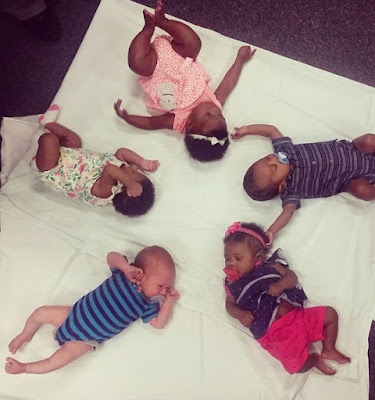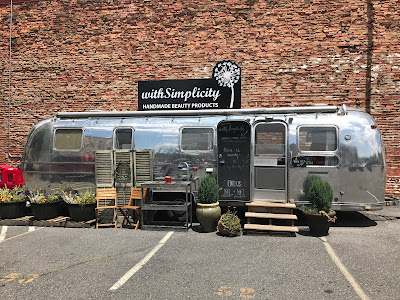Charlottesville
I don't want to write about Charlottesville. I want to ignore the whole situation, bury my head in the sand, and browse through lipstick on Sephora. And to some extent, I could. I have the luxury as a white person of ignoring race issues because I'm largely unaffected by them. I can mourn the injustice of our prison system, the innocent death of a teenager, or a subtle act of discrimination, and then move on with my life. But I can't any longer. The itch is too strong to speak up. We need to have the tough conversations with each other, because that's the only way real change is going to happen. Upset about Civil War monuments being taken down? Ask yourself what part of it is really upsetting you: your passion for Southern history or the feeling of a rug slowly being slipped from under you? We have to be able to adapt to change, even if it means feeling more humble or taking someone else's feelings into greater consideration than our own.
I had a conversation with Patrick about a month ago about race. He made a comment (okay, several) that zinged straight to my heart. He said something along the lines of, "You need to understand racism and the black perspective, because one day your children will be discriminated against."
"Not my children!" I said. "This is 2017! We live in a progressive area...blah blah blah." He assured me that it will happen, and not just once. "We need to talk about this stuff. You need to understand other perspectives, so you can be ready for it," he said.
Patrick's mom is white and we all know how pale I am, so really we have no idea what our children will look like. It's fun to speculate, but also a little scary, when I think about it. I don't want to worry that my children will be mistreated simply because they look more like Patrick than myself. I don't want to wish that they "pass" as white either. I don't want it to be an issue at all. Recent events, however, remind me that our country's race issues are very real, and not far from home.
My perspective on race and diversity has evolved over the years, and I'm sure it will continue to grow. Some things I find helpful, if you're open to expanding your perspective as well:
I had a conversation with Patrick about a month ago about race. He made a comment (okay, several) that zinged straight to my heart. He said something along the lines of, "You need to understand racism and the black perspective, because one day your children will be discriminated against."
"Not my children!" I said. "This is 2017! We live in a progressive area...blah blah blah." He assured me that it will happen, and not just once. "We need to talk about this stuff. You need to understand other perspectives, so you can be ready for it," he said.
Patrick's mom is white and we all know how pale I am, so really we have no idea what our children will look like. It's fun to speculate, but also a little scary, when I think about it. I don't want to worry that my children will be mistreated simply because they look more like Patrick than myself. I don't want to wish that they "pass" as white either. I don't want it to be an issue at all. Recent events, however, remind me that our country's race issues are very real, and not far from home.
My perspective on race and diversity has evolved over the years, and I'm sure it will continue to grow. Some things I find helpful, if you're open to expanding your perspective as well:
- Engage in conversations about race with someone you trust. Maybe you start with a friend of the same race, but you can't stay there forever. Talk with a friend of a different race, and be willing to stumble. Ask honest questions with humility. Allow yourself to be vulnerable. Maybe keep the conversation short, and then revisit it again later (and again). It's a subject that's gotten easier for Patrick and me to talk about but emotions run high. It's okay to step back when you need a break. But don't be silent.
- Talk with people from other cultures too. It's fascinating to discuss culture with friends abroad. Europeans are lightyears ahead of us in terms of diversity. Female leadership, gay rights, etc. I've had several enlightening conversations with Brits in particular and I find it helpful to hear a completely different perspective on cultural norms. Travel and see for yourself, if you have the means. Stepping outside our cozy neighborhoods can be scary but it's SO WORTH IT.
- Learn about the African American experience. I learned about the natural hair movement (struggle) through reading Oprah's magazine. I learned about the lack of African American beauty products through How I Built This podcast (with Carol's Daughter founder) and through Buzzfeed videos where girls struggle to find foundation that actually matches their skin tone. I've also watched very candid videos where biracial young adults discuss growing up in America and figuring out their identity. I'll link those below because they're too good not to share. These may be trite understandings but build a foundation of knowledge wherever you can. Compassion stems from knowledge.
- Acknowledge white privilege. Your life has been easier, just by being white. I'm not saying it's all sunshine and daisies, but there are oodles of books and checklists and resources that can help you understand all the subtle ways that being white gives you an advantage in society, or ways in which society tells you that you are "normal". Band-aids are the classic example, "nude" being synonymous with beige (aka white). My diversity class in college hit me in the face with the concept of white privilege, and it's something I've been aware of ever since. White guilt usually comes with it. Let's channel that energy into something positive, rather than sitting aside as silent bystanders.
What would you add to the list? Let's help each other grow.
I'm going to leave you with this adorable photo of my friend and UVA alum, Alisa Halferty's newborn, Owen, with his peers from birthing class.
XOXO,
Maria
Video links:




Comments
Post a Comment